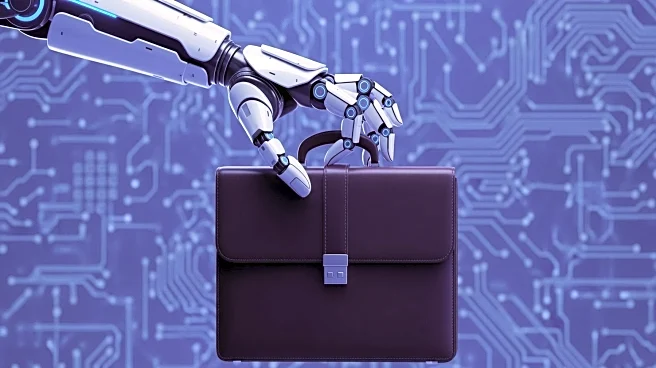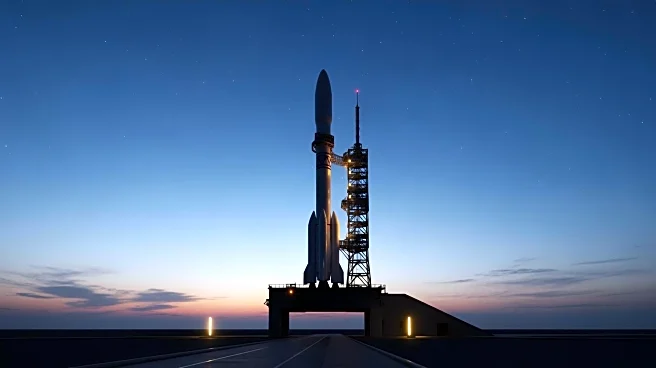What's Happening?
A significant increase in the use of artificial intelligence (AI) in the workforce is anticipated by the end of 2026, with up to 100,000 AI workers potentially entering the job market. This development
is driven by companies investing heavily in AI technology to enhance productivity. According to research by Agentic AI firm Gravitee, AI agents are expected to take over repetitive tasks, allowing human workers to focus on more complex challenges. However, this shift poses a risk of widespread job cuts as companies adjust to the new technology. A survey of 250 executives from large UK companies revealed that 65% plan to reduce their workforce, and 8% intend to freeze recruitment, indicating a reliance on AI to fill these roles.
Why It's Important?
The integration of AI into the workforce could have profound implications for job security across various sectors. Roles in human resources, software engineering, and customer service are particularly vulnerable, with AI capable of performing a significant portion of these jobs. This shift could lead to economic disruptions as workers face potential unemployment or the need to transition to new careers. While AI offers productivity benefits, the lack of proper governance could result in chaos and disruption. The economic landscape may change significantly, with businesses potentially saving costs but at the expense of human employment.
What's Next?
As AI technology continues to evolve, companies will need to find a balance between leveraging AI for efficiency and maintaining a stable workforce. The potential for job displacement may prompt discussions on policy measures to support affected workers, such as retraining programs or social safety nets. Businesses may also need to establish ethical guidelines for AI use to prevent negative societal impacts. The ongoing development of AI will likely lead to further advancements, necessitating continuous adaptation by both companies and employees.
Beyond the Headlines
The rise of AI in the workforce raises ethical and cultural questions about the future of work and human interaction. As AI takes on more roles traditionally held by humans, there may be a shift in how society values different types of work. The potential for AI to replace human jobs also highlights the need for discussions on income inequality and the distribution of wealth generated by increased productivity. Long-term, the integration of AI could lead to a reevaluation of work-life balance and the role of technology in daily life.









